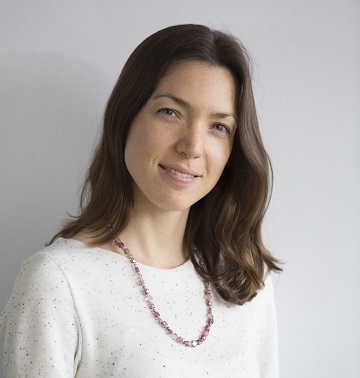 “When my son realised that I’d been involved with the internet in the UK right from its emergence, he asked me, ‘why aren’t we rich then?’ I told him some things are more important than earning lots of money.”
“When my son realised that I’d been involved with the internet in the UK right from its emergence, he asked me, ‘why aren’t we rich then?’ I told him some things are more important than earning lots of money.”
Helen Milner OBE, founder and CEO of Good Things Foundation, recounts the tale with a laugh, but behind the humour is an admission of her priorities. This is a woman who, while impressed by the potential of technology, also recognised the risk of exclusion. She has dedicated much of her professional life to supporting those who would otherwise miss out on the benefits of a digital society and it has gained her recognition and influence at the highest level. She advises Government and impacts policy in this critical area, while in 2015 she was awarded an OBE for her services to digital inclusion.
Despite such attention, progress has been slower than Helen would like, while the rate at which digitalisation infiltrates society speeds up. If there is one silver lining of the black pandemic year, it’s that the lockdown finally drew attention to the damage caused by digital inequality and lent her cause some media noise.
“In some ways the pandemic changed everything and nothing,” she says sagely. “Good Things Foundation has always been talking about digital inclusion – we’re still talking about digital inclusion – but the great thing is that so many more people are too, now. Only time will tell if that results in funding and sustained interest over the long term, but it’s hopeful.”
She sees collaboration and cooperation as vital to truly close the digital divide for good, from Government intervention to education, social projects, and community support. One of Good Thing’s long-term partnerships is with Nominet, with the most recent initiative having been launched in March 2020: ‘Everyone Connected’.
This project builds on work embarked upon during the first lockdown of 2020 to get devices and connectivity to those who were without. Now, with a Nominet grant of £500,000, Everyone Connected will target 1,000 people and provide the support, training and equipment they need to get online.
“We’ll be working with hyperlocal partners on this, using their community knowledge and connections to make it happen,” Helen explains. “This is how you get things done – there are lots of people out there doing good things with good intentions, but we need to pull it all together to really make the changes we want to see, for everyone.”
Helen is passionate about her work and freely admits that she has long ceased feeling that she ‘had a job’ or needs to switch off from something that feels so urgent and innate. “But that doesn’t mean there was any sort of plan to get to this point,” she is quick to explain. “I’ve just ended up here by always doing what seemed most interesting. Actually, my earliest ambition was to be a journalist – that’s why I joined The Times Network for Schools (TTNS) after university.”
It was at TTNS that she got her first experience of the potential of the internet; the organisation was established to introduce schoolchildren to a medium that would define their future by linking up different institutions via rudimentary networks. Helen was intrigued by it all, “but more because of the potential is offered for communication – I was still all about the content: this was just another way of engaging the audience.”
Looking back, Helen now sees that the TTNS experience was innovative and formative. “We worked with John Craven’s Newsround, developing a digital newspaper, and then we established this activity that enabled school children to ‘travel round the world’ by connecting with children in different countries. I’m definitely most proud of those things, looking back now – it was exciting.”
Her next major milestone was piloting and successfully launching what has now become learndirect with Ufi Charitable Trust, helping adults realise their potential by providing skills training. It was yet another step on the path towards Good Things, the social change charity she founded almost a decade ago with the mission ‘help people improve their lives through digital’.
A theme emerges and can perhaps be traced back to her childhood. Despite her family’s financial stability – her parents both worked in education and she was the third of four children – Helen admits to having grown up very aware of social inequality. “We lived on a row of terraces, some of which were owned by the council, and Mum was really keen that we were part of the community,” she recalls. “I saw how we’d had opportunities that others might not get.”
She is now doing something to change that and is rightly proud of the charity she has nurtured over the years. And despite the entrenched nature of the issues, Helen is quietly confident that she will succeed: “We can end digital poverty, I believe we can – and it’s great to see more people believing that now too. As with most things, it will be the final few per cent that will be hard to reach, but if we keep an eye on the goal – and use the pandemic as a catalyst for change – we can make this happen.”
Find out more about the partnership between Good Things Foundation and Nominet on their website.


